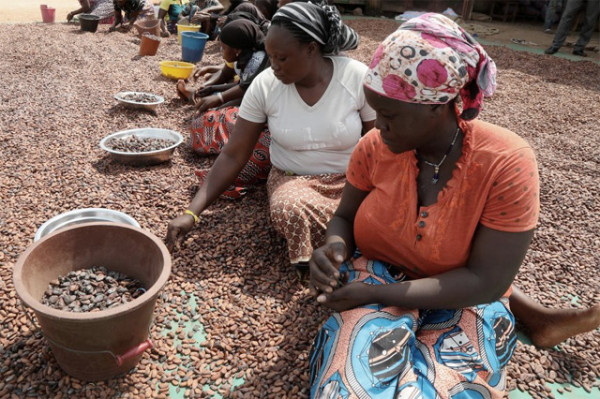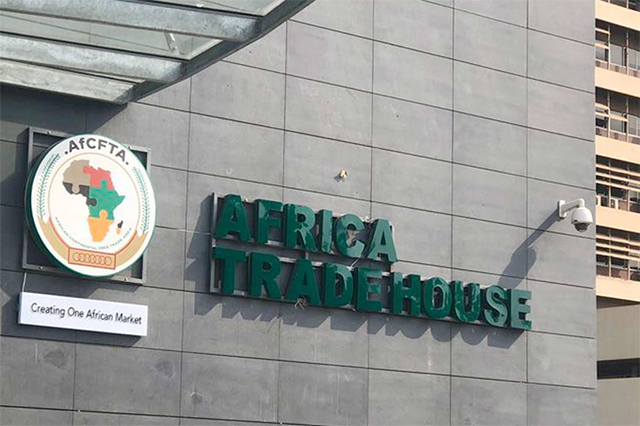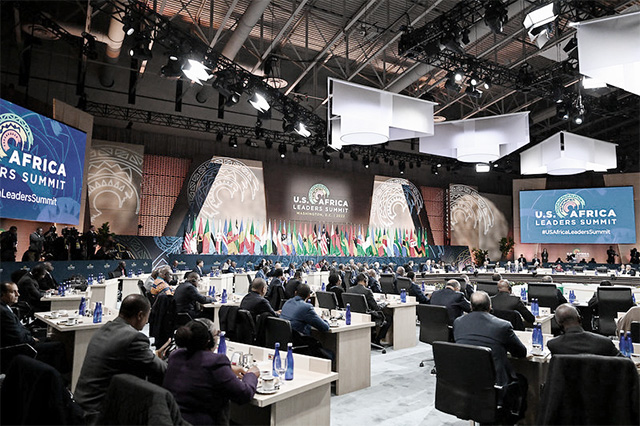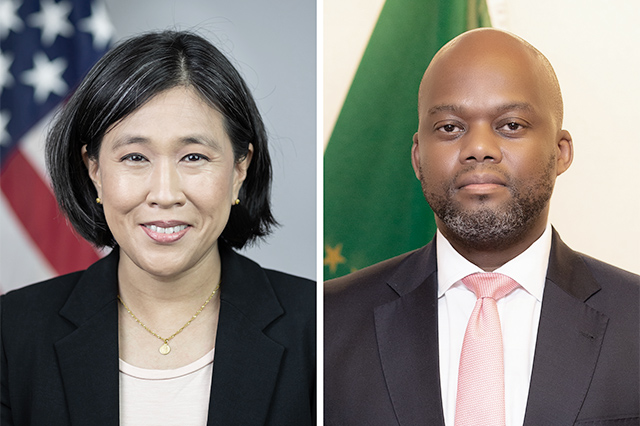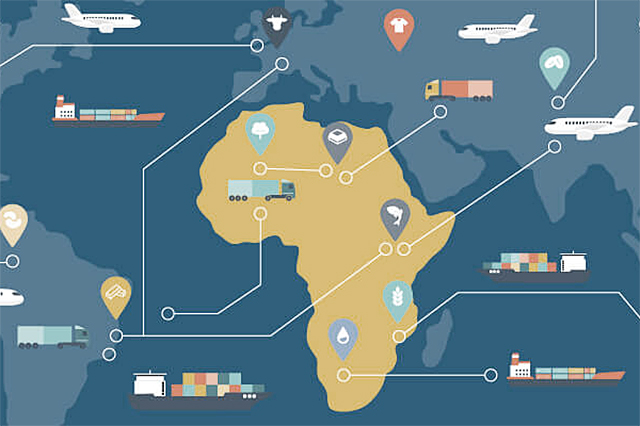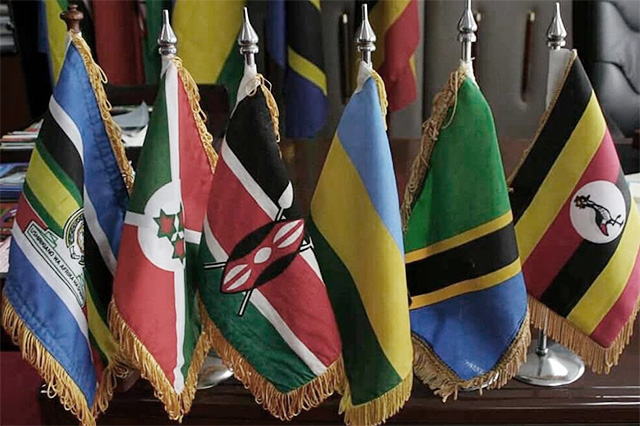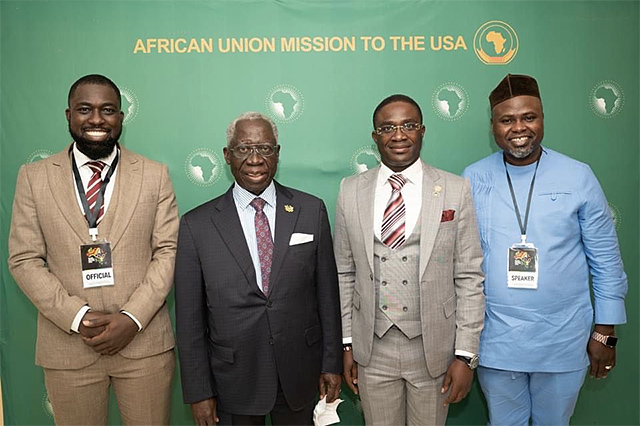Can the US and Africa usher in a new era for globalization?
As the United States looks to usher in a “new version” of globalization focused on resilience, inclusivity, and sustainability, it has eyes on its economic relationship with Africa, according to US Trade Representative Katherine Tai.
Tai spoke at an Atlantic Council Front Page event on Friday alongside the African Continental Free Trade Area’s (AfCFTA) secretary-general, Wamkele Mene.
She explained that the current form of globalization has done a great job to expand the size of the economic pie, but it “hasn’t done a great job in terms of sharing the pie,” as big companies have gotten the biggest slices, at the expense of small and medium-sized companies.
“We need to adjust and rebalance across the board,” she said.
Mene and Tai will attend the White House’s US-Africa Leaders Summit later this month, where African heads of state and government will discuss collaboration on climate change, security, and the economy—and will sign a memorandum of understanding about the US-Africa relationship.
Mene said that the global backdrop—Russia’s war in Ukraine and the pandemic—shows how the world is “incredibly challenged to be more innovative about the tools that we deploy at times of crisis,” with perhaps “the most important tool” being an economic one, based in trade and investment.
Below are highlights from the event, moderated by Africa Center Senior Director Rama Yade, covering everything from the United States’ support for AfCFTA to ways trade policies can include youth, women, and the African diaspora.
Investing in partnership
- Tai said the summit’s discussions on the economy will focus on “unlocking the potential of our relationship, but most importantly, the potential of our people.” Mene added that, at those discussions, he looks forward to using the summit to update both the US government and corporate America about the opportunities that AfCFTA brings.
- With the economic fallout of Russia’s war and the global pandemic, Tai said the world is “in real need of innovation,” particularly in trade and making supply chains more resilient. “These challenges,” she noted, present the world with an opportunity to “figure out how we do the things that we have already been doing better” to tackle crises such as climate change.
- When asked about whether the increased engagement of Chinese companies in Africa is impacting the United States’ strategy on the continent, Tai argued that there are “one million reasons” to focus on improving the US-Africa relationship. The United States’ partnership with Africa “is inherently valuable,” she added, so while China’s “aggressive game” across the world is a factor, she said it is “absolutely not” the driving force.
- Tai encouraged the next US Congress, in which will convene in January, to “engage with Africa” on trade. She pointed to the progress of the African Growth and Opportunity Act (AGOA), first approved by Congress in 2000, which has provided sub-Saharan African countries with duty-free access to the US economic market based on a belief that “this access will stimulate development for our developing-country partners.” But with the legislation expiring in 2025, Tai pleaded for Congress to “think about what comes after AGOA” and how the policy might need to change in the next version of globalization.
A new trade narrative: Inclusivity and integration
- Mene, in discussing how globalization has led to inequalities between Africa and some of its trading partners, added that there are also inequalities within AfCFTA. New trade agreements “must take account of the need to address inequality,” he said. Mene outlined several “concrete steps” to do so, such as how AfCFTA calls for phasing out tariffs on most goods by its fifteenth year, which will cut revenues drastically for some countries. Thus, AfCFTA includes an Adjustment Fund to help make up for the lost revenue.
- Speaking about Africa’s regional economic communities—such as the Common Market for Eastern and Southern Africa or the Economic Community of West African States—Mene said that AfCFTA will aim to integrate these regions so that they can help increase the size of trade flows across the continent. “Our mandate is complementary to the mandates of the regional economic communities,” he said.
- However, he cautioned that “economic integration cannot be achieved if we continue in our regional silos.” For example, AfCFTA has established Africa’s first set of rules of origin, although negotiations about certain sectors are continuing; before, they varied by region.
- Mene explained that in Africa, small and medium-sized enterprises, many of which are owned by women, contribute a majority of the gross domestic product and provide hundreds of millions of jobs continent-wide. They in turn provide opportunities for young Africans, who are on the “cutting edge” of digital technology innovation. Thus, the AfCFTA secretariat is developing a Protocol on Women and Youth in Trade to “codify legally binding obligations… for the inclusivity of young people… and for the inclusivity of small and medium enterprises,” Mene said.
- In thinking up innovative economic policies to harness the potential of Africans and also Americans, it’ll be important to include the United States and Africa’s shared stakeholders, said Tai. That includes the African diaspora in the United States, which she said will play a “hugely important part.”
- With AfCFTA getting underway and the United States’ investment in its partnership with the continent, “we have a very unique opportunity to make sure that we change the narrative of trade and focus on inclusivity,” Mene said.
Katherine Walla is an assistant director of editorial at the Atlantic Council.


